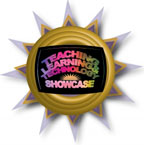
(Author’s note: This is the third in a series about the faculty demonstrations scheduled for K-State’s technology showcase March 13. Information is excerpted from the complete list of faculty demonstrations on the ksushowcase.wordpress.com website.)
The Teaching, Learning, and Technology Showcase is 10 a.m.-1:30 p.m. Tuesday, March 13, in the K-State Student Union Ballroom. All faculty/staff are invited to attend free and see demos, visit with vendors, and win prizes. Pre-registration is required at ksushowcase.wordpress.com/registration and closes March 9.
“Too much information” is a common lament, and no wonder with all the data that technology allows us to acquire. These faculty demonstrations March 13 will show tools and resources for finding, using, storing, and retrieving information.
Digital Innovations in Research, Learning, and Discovery at K-State Libraries — K-State Libraries will demonstrate the newly created “Librarian” role within K-State Online and discuss ways to “embed” a librarian into courses; its new LibGuides platform for customizing course and subject-guide research; and its new discovery tool for finding articles, books, and more with a single search. Learn about instructional videos and other learning objects that can be created and embedded into courses.
Managing Institutional Data With Data Cookbook — The Data Cookbook provides a central, highly visible Web-based location to store and manage our institutional data knowledge. K-State administrators and offices are using the Data Cookbook to define core data in collaboration with partners on campus, to make the reporting process more efficient and provide a central place to share terminology. See real-world scenarios of data requests for reports and the extraction of specific information for official reports. This tool is used by faculty to define the institutional data they need for their research and other work on campus.
E-Learning Faculty Module Wiki — This online, asynchronous modular resource is for faculty who need assistance as they develop coursework. The wiki is for all levels of experience, and more than 25 K-State faculty/staff have contributed to the project. K-State’s goal is to ensure that all courses offered to distance students are well designed, expertly taught, and adhere to legal considerations.
Using Flexbooks to Supplement/Replace the Traditional Textbook — Open educational resources (OER) provide free or lower cost alternatives to textbooks, where prices are increasing and students are slower to buy. This demo will show K-State’s Human Nutrition (HN 400) Flexbook (goo.gl/vOAnR) made in Google Docs. Learn what the flexbook is, how it was developed, students’ perceptions of it, and see this recent article.
K-State Research Exchange (K-REx) — This resource provides a safe, permanent, open access digital archive in which faculty can deposit their journal articles, book chapters, and other scholarly work. K-REx is indexed by Google, Google Scholar, and other search engines, so having an item in K-REx greatly increases access to and the potential readership of a publication. More than 200 K-State faculty have deposited their work in K-REx, and those items have been downloaded thousands of times. Learn how K-REx can increase the impact of faculty’s scholarly work. Visit K-REx at krex.ksu.edu.